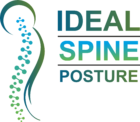If you have never heard of physiotherapy, let me first tell you what it is. Physiotherapy is a type of therapy used to reduce pain and help you live a better life.
Here are the top 7 benefits of physiotherapy:
1. Eliminate or reduce pain
There are many physiotherapy techniques such as soft tissue and joint mobilisation, ultrasound, electrical stimulation or taping that can help reduce your pain and normalise your joint function.
2. Improve Mobility
If you are having trouble moving, walking, standing or performing your favorite activities, physiotherapy can help restore your mobility, regardless of the patient’s age.
3. Recovering from a stroke
After a stroke, it is normal to lose some degree of functionality and mobility. Physiotherapy can help strengthen weak body parts and regain gait and balance.
4. Aids in recovery from sports injuries
It is extremely important for athletes to perform at their peak. Physiotherapy helps you deal with stress fractures, torn muscles, and strained tendons.
5. Improve your balance and prevent falls
Physical therapy can help people of all ages improve and maintain their balance. Board-certified therapists perform various balance tests and develop treatment plans to help you improve strength, stability, and mobility for balance problems.
6. Relieve dizziness
If you are experiencing dizziness, physiotherapy can help you. It involves specific exercises to realign the components of your inner ear. Thus, you will be able to stand up straight without any balance problems.
7. Improve your posture
If you have a desk job, your posture may be poor due to sitting incorrectly in the office. Physiotherapy can help you improve your posture as well as increase flexibility.
What to expect?
A licensed physiotherapist takes care of patients’ health by identifying the cause and symptoms of a condition and treating it according to the patient’s needs and health goals. Physiotherapy is often performed in conjunction with several other treatments or methods to increase its effectiveness and for the best results.
If you’re suffering from chronic pain that can be treated with physiotherapy, your doctor may refer you to a physiotherapist for further assistance.
When you visit a physiotherapist, you can expect the following:
- Through evaluation of your condition, health history, posture, movement, flexibility and testing procedures to help diagnose the root cause of your condition.
- Proper diagnosis, prognosis, and short-term and long-term care planning.
- Physiotherapy and interventions based on the physician’s assessment and diagnosis.
- You may get some exercise and diet plan based on your condition.
Common conditions
- Physiotherapy can treat a variety of medical conditions. Some of these are listed below:
- Chronic obstructive pulmonary disease, cystic fibrosis, post-myocardial infarction
- Carpal tunnel syndrome, trigger finger
- Back pain, rotator cuff tear, temporomandibular joint disorder
- Strokes, spinal cord injuries, Parkinson’s disease, vestibular dysfunction, traumatic brain injuries
- Sports injuries such as concussions and tennis elbow
Types of physiotherapy
There are a total of six types of physiotherapy, each of which is used to treat specific problems.
- Orthopedic Physiotherapy – It can be used to treat fractures, sprains, tendonitis, bursitis, chronic medical problems and rehabilitation from orthopedic surgery.
- Geriatric Physiotherapy – It can help patients suffering from arthritis, osteoporosis, Alzheimer’s disease, hip and joint replacement, and balance disorders.
- Neurological Physiotherapy – As the name suggests, it is useful in treating neurological conditions like Alzheimer’s disease, brain injury, Parkinson’s disease, spinal cord injury and stroke.
- Cardiovascular and Pulmonary – It is used to treat cardiopulmonary conditions such as chronic bronchitis, chronic obstructive pulmonary disease (COPD), congestive heart failure, and emphysema.
- Paediatric Physiotherapy – It is used to treat conditions affecting infants and children such as developmental delay, cerebral palsy and spina bifida.
- Vestibular Physiotherapy – This may be of benefit to patients suffering from inner ear conditions, including vertigo, dizziness, tinnitus, acoustic neuroma.
How to find the right physiotherapist?
Before visiting any physiotherapy clinic in Paschim Vihar, Delhi, you must check the following criteria:
- Qualification: Make sure your physiotherapist is fully qualified and accredited and has a state license to practice therapy.
- Expertise: As mentioned above, there are many types of physiotherapy available. So make sure you are going to an experienced physiotherapist Paschim Vihar, Delhi who can help you with your specific condition.
- Treatment Methods: You should know what methods they are using to treat the patients.
Ideal Spine Posture is a trusted Chiropractor and Physiotherapy clinic in Paschim Vihar, Delhi, established in 2010, Specializing in back pain, neck pain, disc herniation, frozen shoulder, knee osteoarthritis, and joint pain. We have assembled a highly qualified employment of the experienced chiropractor and physiotherapist in Paschim Vihar, Delhi NCR.
Read More Also- How Important is Physiotherapy for Our Daily Lives? 8 Benefits to Consider




